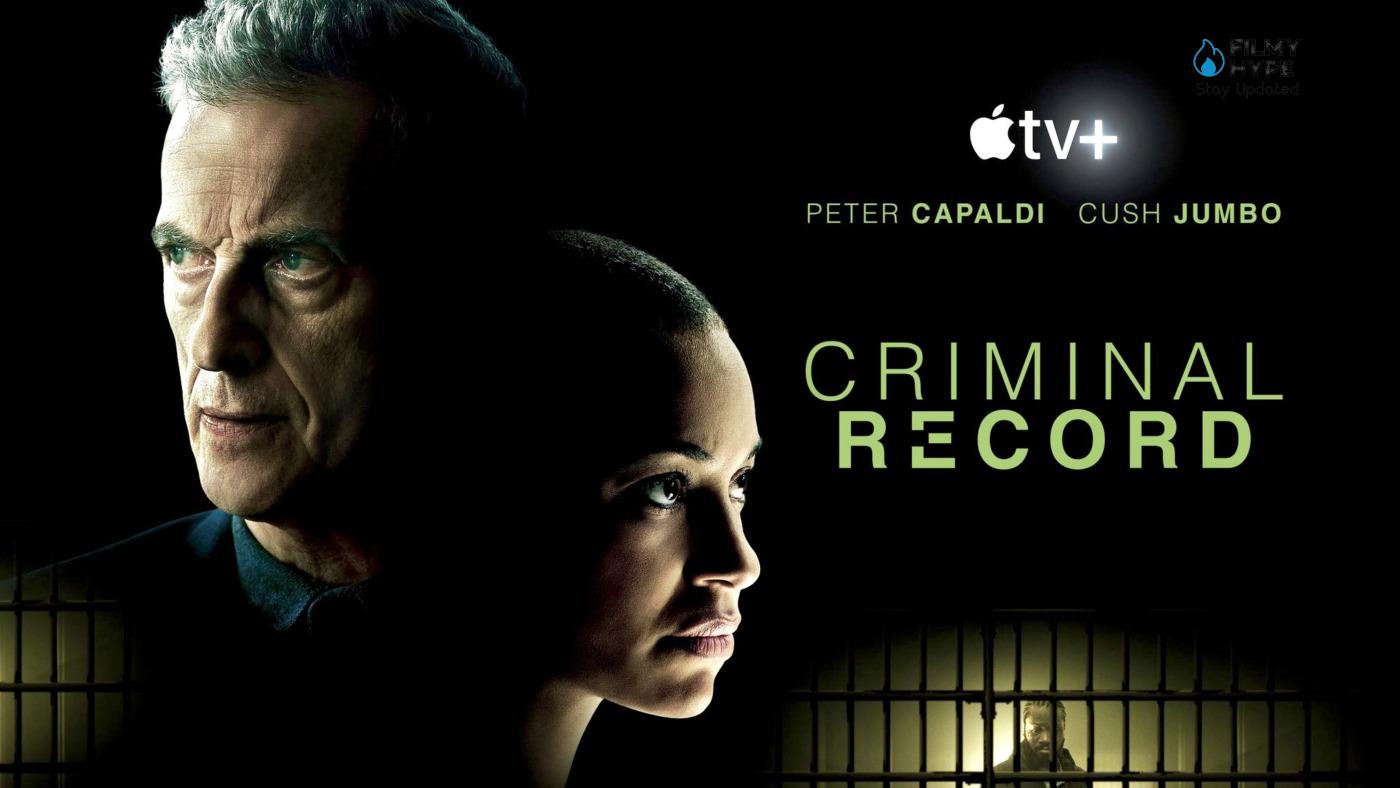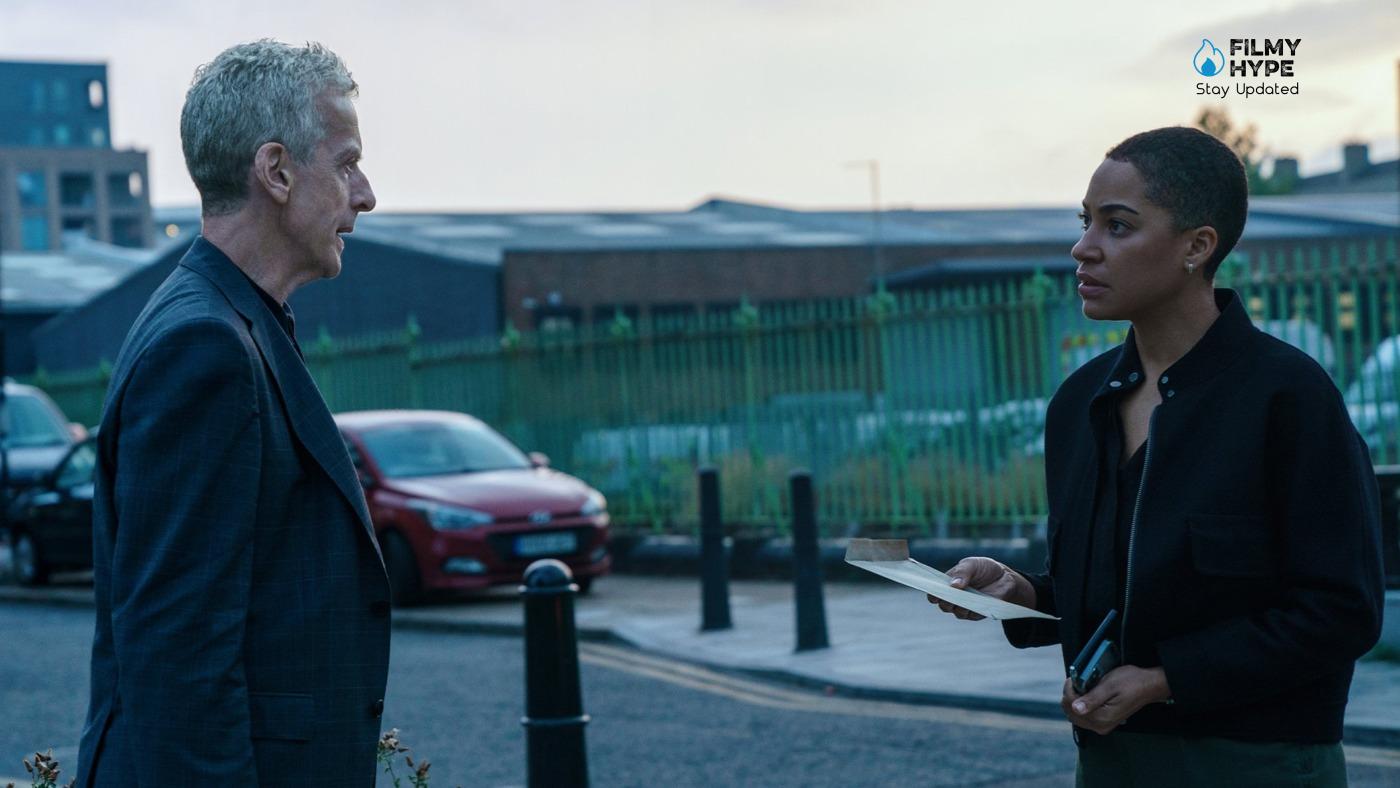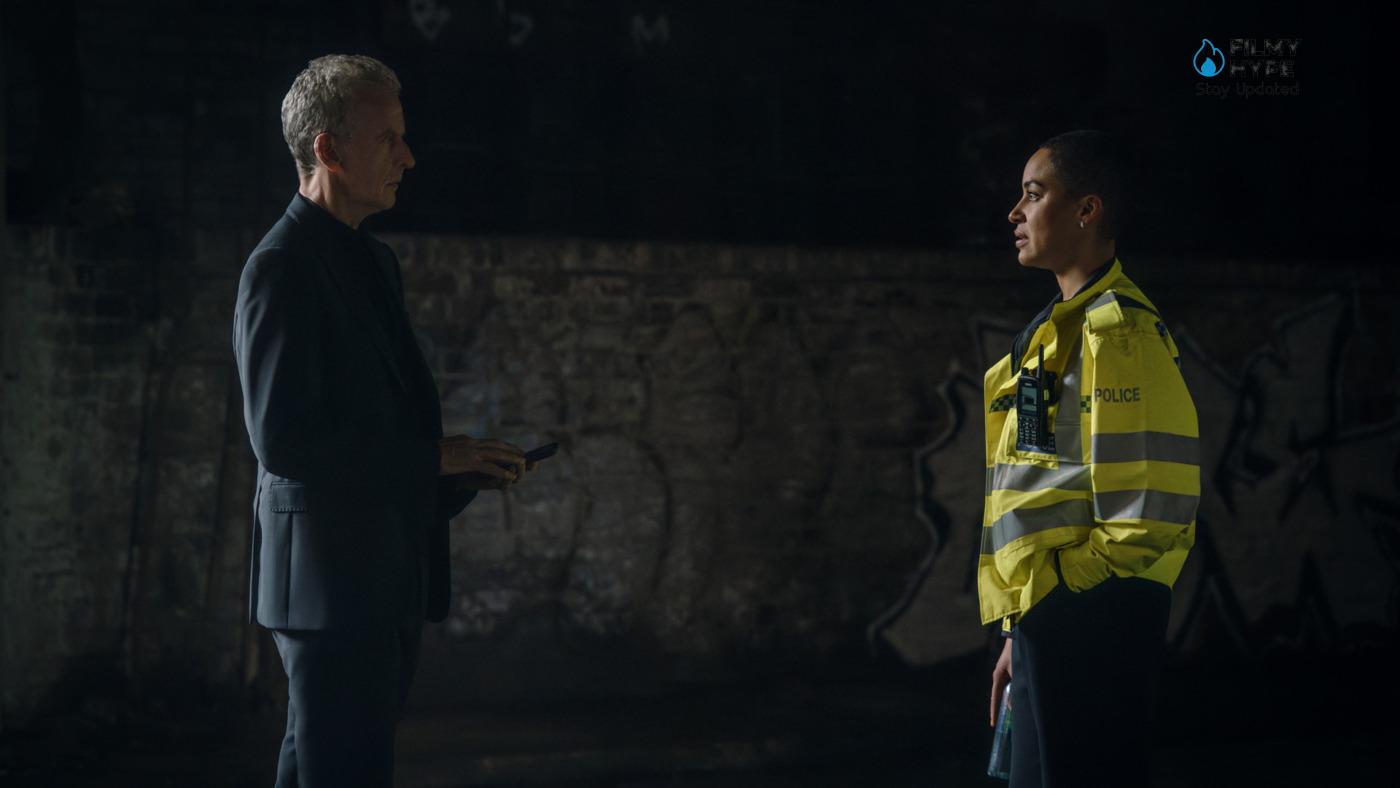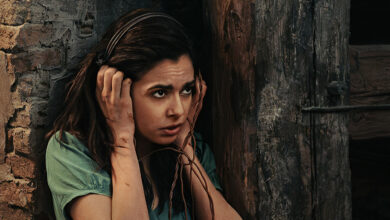Criminal Record Review: Apple TV+’s Incisive and Realistic Crime Story That You Will Love
Cast: Peter Capaldi, Cush Jumbo, Zoë Wanamaker, Charlie Creed-Miles, Cathy Tyson, Stephen Campbell Moore
Created By: Paul Rutman
Streaming Platform: Apple TV+
Filmyhype.com Ratings: 4/5 (four stars)
Criminal Record is now available to stream on Apple TV+ If you love believable, realistic detective stories, those in which the writing and the depth of the characters dominate, this is for you. Don’t worry, no clichés or Deja vu, no bad copies of what you’ve already seen in the past, or some sort of American-style action hybrid. Here, rather than a battle of muscles, we have a mental confrontation, a game of chess in search of the truth. Paul Rutman creates, Peter Capaldi and Cush Jumbo play the protagonists of a series that is a nice breath of fresh air, something that the genre certainly needed. Noir is the genre that, better than many others, has been able to delve into the unfathomable darkness of the human soul and the blind spots of the metropolis, narrating reality through a specific, well-codified, and recognizable grammar.

A privileged filter, a particular eye that spies into the folds of the contradictions that animate human beings, framing them in that subtle limbo between darkness and light, a gray area in which they end up wandering like ghosts in a desolate urban landscape, thanks to the darkness of the night that hides everything and the leaden gray of the buildings among which to hide. These key elements of the genre are now cornerstones, essential topoi that have crossed every film transversally, even if distant in space and time, up until today, in an era defined as post-modern in which all the stories have already been told. The real difficulty today consists in being able to update these linguistic and aesthetic codes, ferrying them into a new narrative and perceptive dimension, to match the tastes of an increasingly savvy and demanding public. But it is not a simple task to find a way into the hearts of spectators who are increasingly aware of what they want and immortalized in the continuous search for the right place to find what they are looking for, among increasingly large and boundless platforms and catalogues.
Criminal Record Review: The Story Plot
In London, a sudden anonymous phone call reopens an old case, bringing two brilliant detectives to confront each other about it: she – June Lenker (Jumbo) – is a young woman at the beginning of her career, while he – Daniel “Dan” Hegarty (Capaldi) – is a well-connected man in the local police force with a long career behind him, and he is determined to protect his reputation at all costs. Their completely different methods, as well as the approach to investigations that take place both in the past and in the present to rewind the threads of a dramatic case of violence, will push them more and more against each other, in a battle with no holds barred that will force them to go beyond their limits, to the point of challenging conventions and rules. The viewer will therefore find themselves faced with a new story, with a thriller flavor, which bears the signature of BAFTA Award nominee Paul Rutman (Vera, Indian Summers), also present as executive producer together with BAFTA Scotland Award winner Elaine Collins (Shetland, Vera) and to Capaldi and Jumbo themselves.
The beauty of the Criminal Record lies in its ability to reconnect, with intelligence and experience, the threads of a traditional as well as modern narrative, aware of the past to cast a new gaze on the contradictions of the present. The atmospheres in which the various protagonists involved in the narrated story move, like fish in an aquarium, are typical of the genre, of the smoky and gray noir of yesteryear, with an aesthetic sculpted by the chiaroscuro of existence and barely illuminated by the blinding neon of endless nights. The character of Dan Hegarty, in particular, is the quintessence of the idiosyncrasies of the great detectives of literature and screen, from Marlowe created by Raymond Chandler to those who populate Mickey Spillane’s novels; hard-boiled anti-hero sketched by the imaginary pen of a James Ellroy ready to delve into the unfathomable darkness of a torn soul.

Underlining this evocative, laconic, and wrinkled atmosphere is the other great star of the series, namely the city of London: a cosmopolitan and glittering metropolis, a melting pot divided between light and shadow, crossed by different cultures that struggle to coexist, to integrate, as well as finding a balance capable of guaranteeing stability, the English capital is the ideal set for the story told in Criminal Record. Because its mood influences the characters, attitudes, and perhaps even their characters and personalities, determining the relationships that exist between them and which transform the final product into something different than the television average.
Criminal Record Review and Analysis
Because England is, in its own way, the home of a thriller-crime genre with neo-noir nuances, between investigations and sagacious detectives (even improvised) who very often reflect the harshness of the landscape that surrounds them and in which they move. This is demonstrated by great literary and television successes, children of national-popular TV, and new streaming platforms; but in arriving on Apple TV+ the Rutman and Collins series raises the bar by becoming just a means of telling a much more complex reality, focusing its attention on the characters rather than on the investigation itself, which ends up becoming a mere expedient narrative to show – through images – a much more complex “something else”. The focus of the series lies in the desire to analyze a society like the contemporary English one, grappling with problems linked to racism, gender violence, lack of justice (and the consequent abuse of power), social tensions, and failure of institutions.
For these reasons, the Criminal Record once again reconfirms how gender is the ideal – and sometimes distorting – lens for reflecting ourselves and the world we live in on its surface, trying to interpret our daily lives. The other peculiarity of this audiovisual serial product lies in the (iron) will to filter everything through the sensitivity and gaze of the protagonist June, because Hegarty is the specter that haunts her, her “negative” nemesis who represents everything that she is not, embodying a world – masculine, patriarchal, corrupt, ambivalent – to which she does not belong but in which she is immersed and which she finds herself having to face every day, trying to assert herself in a hostile reality that undermines her for countless reasons (sex, ethnicity, etc.), forcing her to have to bring out her voice at all costs, roaring to carve out her own living space.

Thus the character of June, the lioness at the head of a pack of other memorable female characters outlined in the series, becomes the embodiment of a new female cinema and television that is advancing, which breaks through genres that have always been canonized and look at the masculine and reduce the women to fixed figures, supporting presences in narratives that today finally find new interpretations and new voices capable of telling them. Criminal Record has everything to please the male audience too, in a period in which girl power has often been expressed in a rather crude and clumsy, not to mention annoying, way. If on the big screen and also on the small screen, female heroines often appear essentially as males with masks, invincible beyond the suspension of disbelief, Criminal Record instead pursues a verisimilitude and realism that make us understand how June can only do so much appeal to physical strength. Perseverance, determination, intelligence, and above all analytical skills are her best weapons.
Another very interesting element is how all this is stuck on what is and remains above all a human being. She is not an Enola Holmes, a Lara Croft, or similar, she is a woman of our time, she has a family, emotions, and weak points. But she appears moved by empathy, by the desire to do the right thing, without there being any trace of that perfection in her, which has made several “colleagues” devoid of complexity, two-dimensional. Criminal Record, however, also has a man like Hegarty, to whom Capaldi gives a glacial ambiguity, the finished portrait of everything twisted by the uniform has often been represented from a historical point of view, certainly not only in the United Kingdom. More than a shield for the defenseless and helpless, in him we see an instrument of the “system”, a hammer towards the oppressed, those different from the norm, the subversion who uses the law as a shield to survive or not?
Also, for this reason, the Criminal Record becomes, for better or worse, a metaphor for the West of today, so conflictual and difficult to understand, but also calls to look more critically at its past, in which integration and gender equality have not been created, where a macho and subversive culture that is very hard to die remains. All the elements that contribute to making these series something very interesting, net of a script in which Rutman, as on other occasions in the past, gives the impression of indulging too much in excessive details. But the final result remains positive, capable of reinvigorating the genre, which has become too commercialized in recent times.

The unsolved case itself, the murder of a woman named Adelaide Burrowes, isn’t particularly complicated or innovative, but the story surrounding it is full of surprising twists, from choices that reveal unexpected layers of characters we thought we had including to new information that challenges our assumptions about the investigation we are watching on the screen. While much of the conflict between Hegarty and June is correctly framed as some kind of generational divide – an ambitious young woman shaking up the system of favors, informants, and cover-ups that men like Hegarty helped create and still profit from – it is rendered increasingly complicated by the fact that both characters are so fallible and flawed in their ways.
The drama’s other subplots, involve Errol’s son Patrick (Rasaq Kukoyi) trying to find a way to make a life for himself in the shadow of his father’s crime, Hagerty’s attempt to parent a troubled daughter and June’s mentally declining mother Maureen (Zoe Wanamaker) isn’t as interesting as the series would have you believe and are all essentially overshadowed by the complicated back-and-forth between Hegarty and Lenker, which at times adopts an adversarial tone, other times almost respectful, even mentor-like. As far as crime drama in the strictest sense goes, the central case of the Criminal Record breaks no new ground in terms of storytelling, even if it touches on several painfully current issues regarding the major failures and institutional problems of the police and justice in general. However, as two-part entertainment between two powerful performers at the top of their respective games, it’s more than worth your time.
Criminal Record Review: The Last Words
Criminal Record ties together the threads of a traditional as well as modern narrative, aware of the past to cast a new look at the contradictions of the present to tell the story of the society in which we live, bringing up social problems such as racism, the lack of justice, the violence of gender and corruption. To do this, it uses the genre (noir-thriller) as an ideal lens to reflect ourselves and the world we live in, filtering everything through the powerful female voice of its protagonist, June Lenker (Cush Jumbo). Criminal Record subverts the expectations of the police procedural by leaving the resolution of the main case on the sidelines of the story and focusing everything on the confrontation between its two protagonists. An original intuition within a series that is not always so focused.







